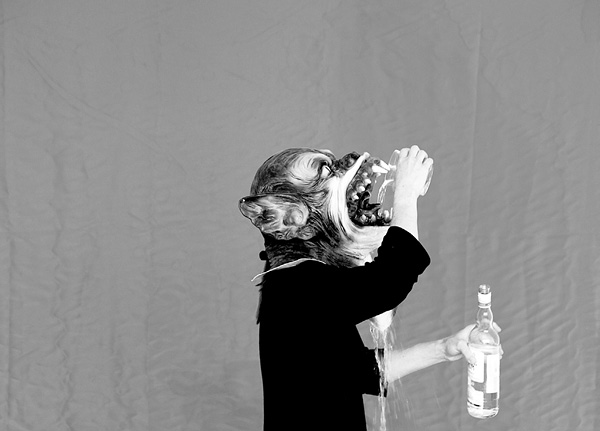
POUR
first performed on August 10, 2016
Paragon Studios, Belfast, Northern Ireland
performed twice in 2016
JESSICA HIRST
Sinead O’Donnell, Heike Pfingsten, four members of Alcoholics Anonymous, one homeless alcoholic
Venice, Italy / California, USA
540887750p540887750a540887750l540887750m540887750e540887750r540887750f540887750i540887750s540887750h540887750m540887750a540887750n540887750@540887750g540887750m540887750a540887750i540887750l540887750.540887750c540887750o540887750m
jessicahirst.net
POUR
JESSICA HIRST
I created two versions of “POUR” to communicate the experience of being an alcoholic using audio and visual performance elements.
The first version was to be performed in Belfast, Northern Ireland, which is known for rampant alcoholism. Having gotten sober in 2014, I became close to my local group of Alcoholics Anonymous in the small town where I lived in the Dominican Republic. I recorded the stories of four members of my group. The narratives were diverse, ranging from falling in love with alcohol, to addiction, to extreme consequences including near-death hospitalizations, criminal activity, and loss of important relationships and jobs. I created a soundtrack from the stories.
I began the performance by serving beer and whiskey to the audience. I then put on a monster mask and poured a lot of booze down the throat of the mask. The alcohol flowed over my head, on the floor. With evident desperation I threw glasses and bottles against the wall, finally surrendering prostrate on the floor. I took off the mask and hammered it to the wall. Another performer, Sinead O’Donnell, put a halo of flowers on my head to represent the journey of recovery. As the soundtrack spoke of the ever-present danger of relapse, I took a beer and sat underneath the mask, the question of whether I would drink it left hanging in the air.
In Nordhorn, Germany, collaborator Heike Pfingsten took me to a shelter for alcoholics who couldn’t stay dry. The German government believes in shelter and healthcare for all, so they allow the residents to have two beers a day in their rooms. Heike helped me interview one of the residents. The man had a long history of drinking, periods of sobriety, many jobs, being cut off by family, and restoring family ties. My performance of this story also involved a monster mask, this time a zombie horse, an elaborate array of German drinkware, and dizzying circles of sobriety and relapse.
Both versions of “POUR” explored different facets of the lived experience of alcoholism—spoken stories paired with addiction-as-monster.